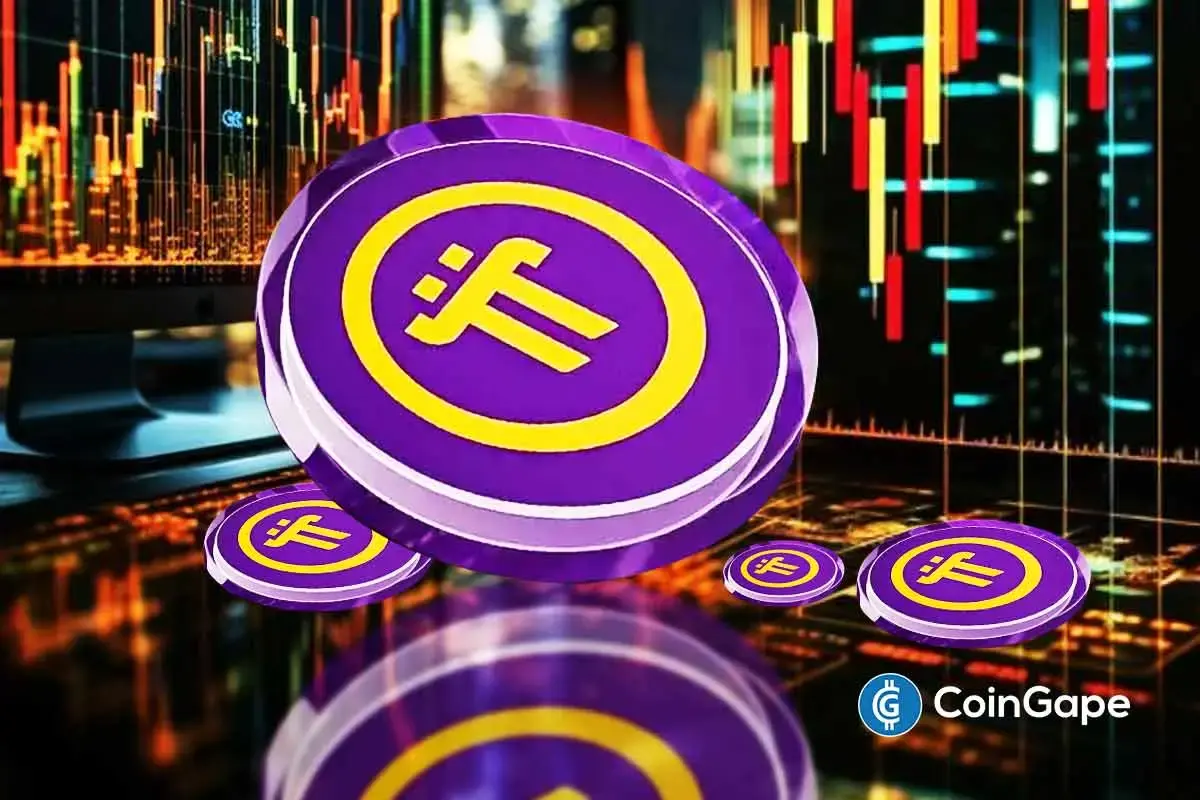Pi Network Loses $18B Value in Six Months as Expert Warn of “Rug Pull” Risk

Highlights
- Pi Network has reportedly lost over $18 billion in just six months.
- Expert Mr. Spock Ape described the crash as “basically a rug pull."
- New features from the team have failed to spark meaningful recovery or attract investor trust.
An expert has touted Pi Network as a potential “rug pull” project. This comes as the project, which once carried a valuation of over $20 billion, has reportedly shed more than $18 billion in just six months.
Pi Network Faces Sharp $18B Value Decline
Investor confidence in Pi Network has declined significantly following a 90% drop from its all-time high. Prominent community expert Mr. Spock Ape described the crash as “basically a rug pull.” He also noted that many Pioneers continue to mine without realizing the scale of the project’s loss.
Mr. Spock shared that, despite the decline, some community members still cling to the long-standing “Global Consensus Value” (GCV). It claims that one Pi would equal $314,159. He argued that the GCV narrative has become a myth that keeps miners hopeful, while the real market struggles to find liquidity or external listings.
Building on the rug-pull calls, the project’s leadership has consistently been under scrutiny. As CoinGape previously reported, former executive McPhilip accused the Pi core team of mishandling roughly $20 million in project funds and claims he was unfairly dismissed.
Court filings reportedly show tension between co-founders Dr. Nicolas Kokkalis and Chengdiao Fan, with insiders describing a “toxic work environment.” These allegations, dating back to 2020, have resurfaced as the project faces calls for more transparency in how its funds and mining rewards are being managed.
Pi Coin also fell out of the top 50 crypto assets as a lack of major ecosystem developments erased billions in its paper value.
Despite efforts to reduce supply, the token has continued to see a downturn. For example, the Pi Network reduced the base mining rate to 0.0027405 π per hour in September, a 1.23% cut from the previous month. It now takes over 15 days to mine a single Pi without bonuses.
Upgrades Fall Flat as Pi Coin Extends Steep Decline
The project’s latest technical strides are failing to boost investor confidence as Pi Coin continues to shed value. For instance, Pi Network added DEX and AMM tools to its testnet. The purpose of these tools is to assist developers in simulating DeFi activity in a controlled setting.
Pi also upgraded its testnet to version 20, with advocates calling it a “key milestone” toward the eventual mainnet release. This upgrade enhances the blockchain’s structure to support additional applications and increase network activity.
In another recent move, the team introduced its “Fast Track KYC” feature aimed at accelerating user verification. Prior to applying for KYC, Pioneers had to finish 30 mining sessions, which caused months of delays. The new AI-powered system now enables earlier verification and faster access to mainnet wallets.
Despite these developments, its financial credibility remains under strain. Many are wondering if the project can win back the trust of investors after its $18 billion value loss.
Recent Posts
- Crypto News
Crypto Hacks 2025: North Korean Hackers Steal over $2B in ETH and SOL This Year
In 2025, crypto hacks increased significantly. The cybercriminals associated with the North Korean government stole…
- Crypto News
Universal Exchange Bitget Removes Barriers to Traditional Markets, Offers Forex and Gold Trading to Crypto Users
The number one universal exchange Bitget is removing barriers between crypto and traditional finance. It…
- Crypto News
Breaking: U.S. CPI Inflation Falls To 2.7% YoY, Bitcoin Price Climbs
The U.S. CPI inflation came in well below expectations, providing a bullish outlook for Bitcoin…
- Crypto News
Crypto Market Brace for Volatility Ahead of Today’s U.S. CPI Data Release – What to Expect
The crypto market could see some price fluctuations ahead of the release of the major…
- Crypto News
Breaking: Canary Capital Files S-1 for its Staked INJ ETF
Canary Capital amended its staked INJ ETF application with the U.S. Securities and Exchange Commission…
- Crypto News
US FED, SEC Just Boost Institutional Adoption, Tokenization, Liquidity, Will Crypto Market Recover?
The US Federal Reserve (Fed) and the Securities and Exchange Commission (SEC) announce key crypto…